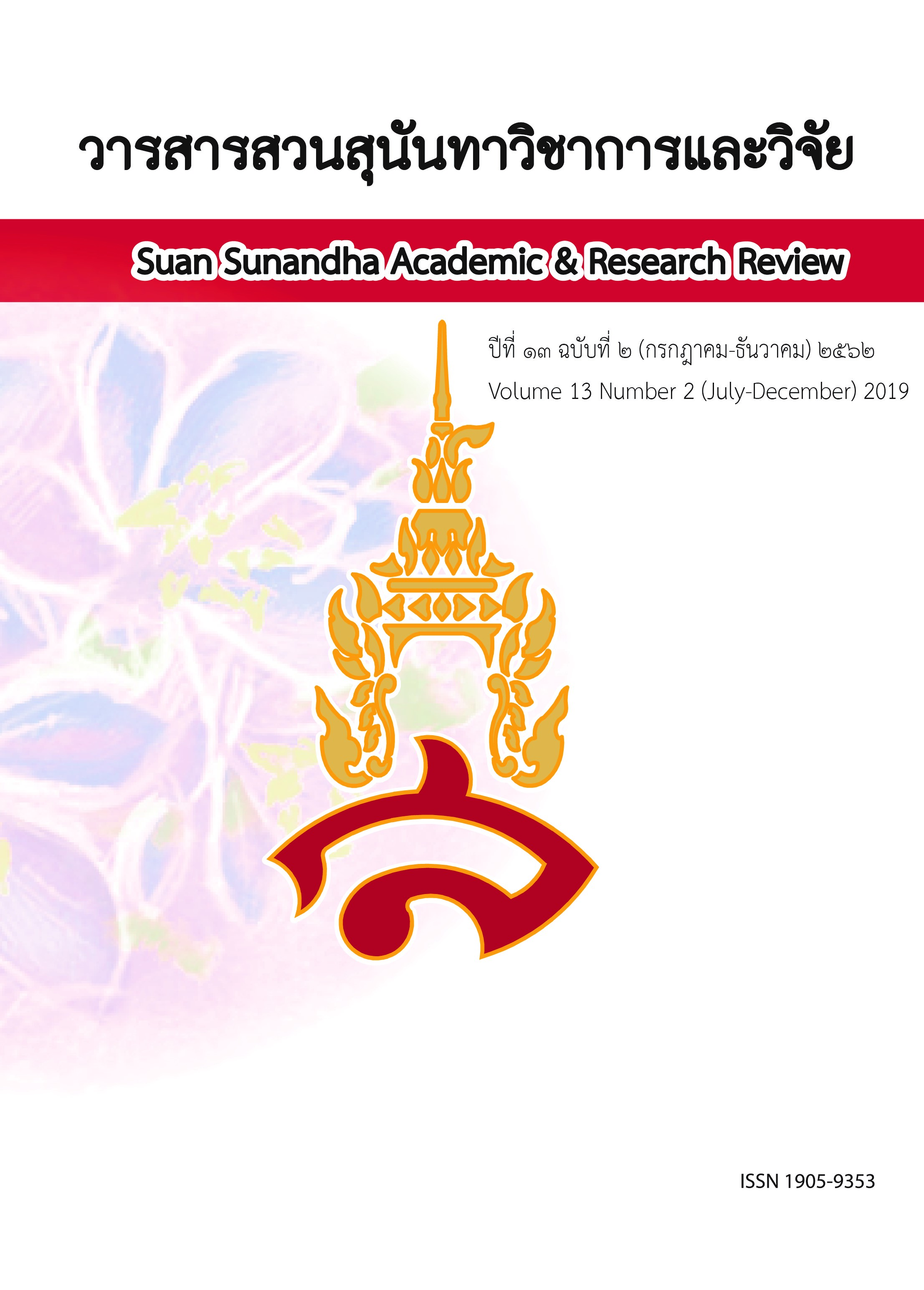Examining School Climate and Teachers’ Organizational Commitment
คำสำคัญ:
school climate, organizational commitment, school-based management, school management.บทคัดย่อ
This study examined the school climate, teachers’ organizational commitment, investigated the perceived school climate of the participating schools, and teachers’ organizational commitment. It aimed to contribute to the knowledge and understanding of the effects of the school climate on teachers’ organizational commitment. Data were gathered from six participating schools from all districts of the Schools Division of Quezon City. The study was descriptive in nature and the respondents’ responses were measured through a survey which was followed by interview and focus group discussions to probe and constructively discuss what factors would improve or strengthen teachers’ organizational commitment and school climate. In total, 218 teachers and 6 principals participated. The instrument used to measure school climate was based from the School Climate Assessment Instrument (SCAI) developed by John Schindler of the California State University and the Three-Component Organizational Commitment Questionnaire developed by Natalie Allen and John Mayer to assess the respondents’ organizational commitment. The results suggested a strong positive relationship between school climate and teachers’ organizational commitment. Moreover, the results proved that school climate influenced the teachers’ organizational commitment and elicited other factors that somehow affected their organizational commitment.
เอกสารอ้างอิง
Cohen, J., Mccabe, E. M., Michelli, N. M., & Pickeral, T. (2009). School climate:research, policy, practice, and teacher education. Teachers College Record, 111(1), 180-123.
Lucero, L., & Etom, R. (2017). School climate as it relates to organizational commitment of teachers. The International Academic Forum.
National Education Association. (2013). Importance of School Climate. Retrieved from https://www.nea.org/assets/docs/15584_Bully_Free_Research_Brief-4pg.pdf
Smith, T. K., Connoly, F., & Pryseski, C. (2014). Positive school climate: what it looks like and how it happens.
Baltimore Education Research Consortium
Thapa, A., Cohen, J., Guffey, S., & Higgins-D'Alessandro, A. (2013). A Review of School Climate Research. Review of Educational Research, 83(3), 357-385. doi:10.3102/0034654313483907
ปีท่ี ๑๓ ฉบับท่ี๒ (กรกฎาคม-ธันวาคม) ๒๕๖๓ Volume 13 Number 2 (July-December) 2020
Celebi, N., & Korumaz, M. (2016). Teachers loyalty to their supervisors and organizational commitment. Educational
Research and Reviews, 11(12), 1161-1167. doi:10.5897/err2016.2808
Cerado, E. (2016). School Climate, Teachers' Efficiency and Learning Outcomes in Koronadal City Schools Division,
Philippines. Research Gate, 6(1). Retrieved from Doi: 10.15341/jmer(2155-7993)/01.06.2016/003
Cohen, J., Pickeral, T., & McCloskey, M. (2009, April). Assessing School Climate. Retrieved from http://www.eddigest.com
Farah, E. (2017). Effective Strategies of a Behavior Management Plan (Master's thesis). Retrieved from Education
Commons.
Jonathan, G. K., & Mbogo, R. W. (2016). Maintaining Health and Safety at Workplace: Employee and Employer’s
Role in Ensuring a Safe Working Environment. Journal of Education and Practice, 7(29). Retrieved from
https://eric.ed.gov/?q=school+safety+to+teachers&ft=on&id=EJ1118861
Mohamed, M., & Ruth, A. (2016). Workplace spirituality and organizational commitment: a study on the public
schools teachers in Menoufia (Egypt). African Journal of Business Management, 10(10), 247-255.
doi:10.5897/ajbm2016.8031
Smith, L. D. (2009). School climate and teacher commitment (0127) (Doctoral Dissertation). Retrieved from
http://acumen.lib.ua.edu/
Starnes, B. J., & Truhon, S. A., (2006). A primer on organizational Commitment. Retrieved from
http://asqhdandl.org/uploads/3/4/6/3/34636479/commitment.pdf
Tentama, F., & Pranungsari, D. (2016). The roles of teachers’ work motivation and teachers’ job satisfaction in
the organizational commitment in extraordinary schools. International Journal of Evaluation and
Research in Education (IJERE), 5(1), 39. doi:10.11591/ijere.v5i1.4520
ดาวน์โหลด
เผยแพร่แล้ว
รูปแบบการอ้างอิง
ฉบับ
ประเภทบทความ
สัญญาอนุญาต
บทความที่ได้รับการตีพิมพ์เป็นลิขสิทธิ์ของ สถาบันวิจัยและพัฒนา มหาวิทยาลัยราชภัฎสวนสุนันทา
ข้อความที่ปรากฏในบทความแต่ละเรื่องในวารสารวิชาการเล่มนี้เป็นความคิดเห็นส่วนตัวของผู้เขียนแต่ละท่านไม่เกี่ยวข้องกับมหาวิทยาลัยราชภัฎสวนสุนันทา และคณาจารย์ท่านอื่นๆในมหาวิทยาลัยฯ แต่อย่างใด ความรับผิดชอบองค์ประกอบทั้งหมดของบทความแต่ละเรื่องเป็นของผู้เขียนแต่ละท่าน หากมีความผิดพลาดใดๆ ผู้เขียนแต่ละท่านจะรับผิดชอบบทความของตนเองแต่ผู้เดียว






